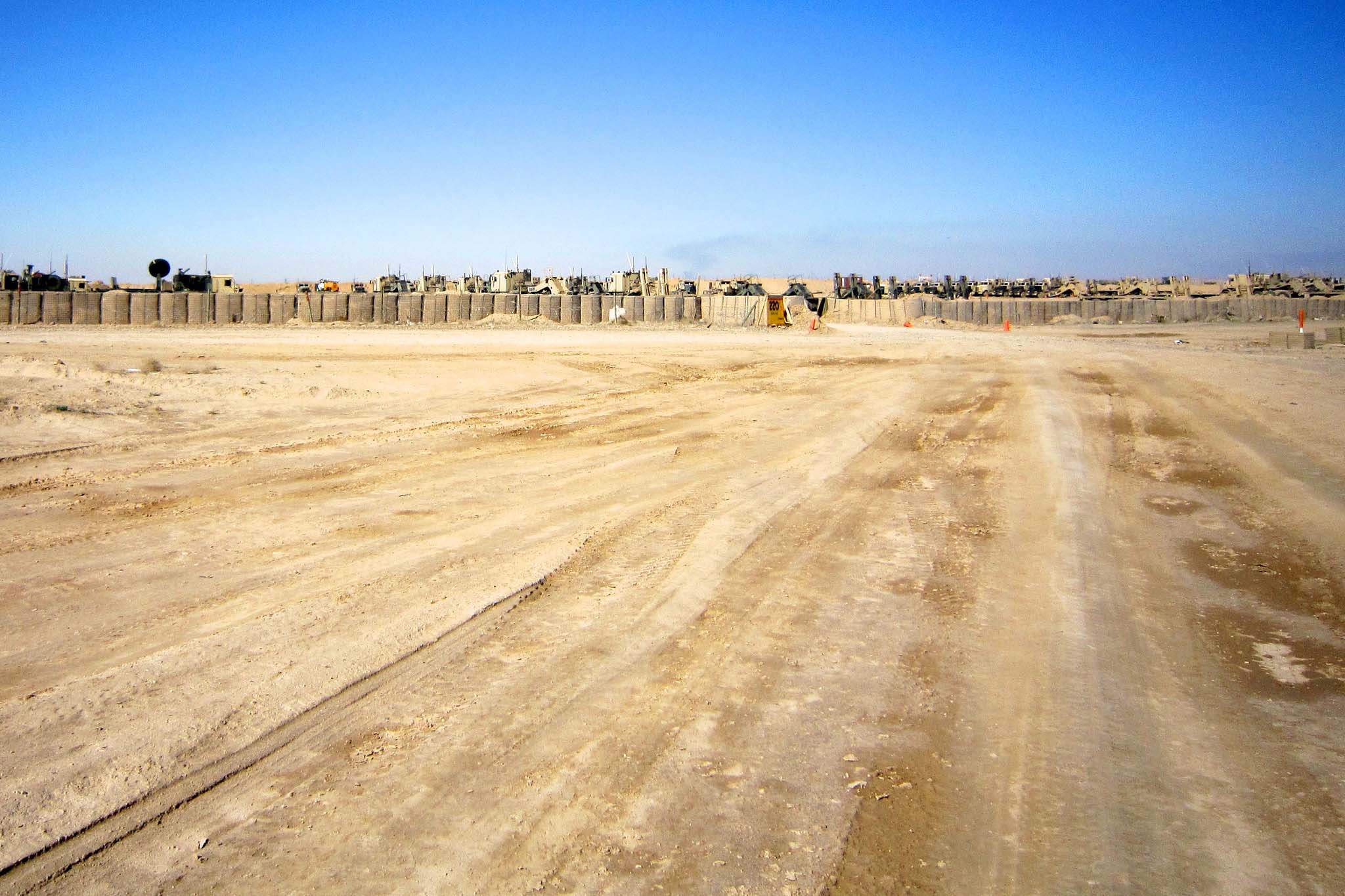
Seven Qatari citizens, one Kuwaiti national and one man from Saudi Arabia who were presumably abducted in Iraq while on a hunting trip yesterday have been set free, according to Al Jazeera’s Arabic channel.
The Qatar-funded network said the nine people arrived in Kuwait late last night, citing its correspondent in the Gulf country.

Several other media reports, including Kuwait’s Al Watan newspaper and the Iraq Media News Agency stated that nine Qatari nationals were released, according to Kuwaiti security sources.
They stated that the released hunters crossed through the Al Abdali border and were handed over to Kuwaiti authorities, in the presence of the Qatari ambassador in Kuwait.
They were transported by an air ambulance to the hospital for treatment, Kuwait’s Al Watan reported, without clarifying how many victims suffered from injuries and how severe their injuries were.
What happened
Details have not been disclosed regarding the deal that led to their release and what happened to the rest of those who were taken.
At least 26 Qataris were kidnapped while hunting in the desert of the Al Muthanna province in southern Iraq near its border with Saudi Arabia early yesterday.

Speaking to Doha News, the spokesperson of Qatar’s Ministry Of Foreign Affairs (MOFA) declined to comment on the issue.
However, in its latest statement, which was issued last night, MOFA said that it is in touch with “the Iraqi government and concerned entities at the highest security and political levels in Iraq, in order to find out details of the Qatari citizens’ abduction and work on their release as soon as possible,” Qatar News Agency (QNA) reports.
The statement added that Qatar’s Assistant Foreign Minister for Foreign Affairs, Mohamed bin Abdullah Al Rumaihi and its ambassador to Baghdad, Zayed bin Saeed Al Khayareen were working with the Iraqi government to ensure the safety of the nation’s citizens.
MOFA stressed that the hunters entered the Iraqi territories through an official permit from the Iraqi Ministry of Interior and in coordination with the Iraqi embassy in Doha.
However, Iraq’s interior ministry said in a statement:
”The Qatari citizens were moving in vast desert areas without abiding by the interior ministry’s instruction not to move outside the secured zones.”
Yesterday Reuters quoted an unnamed police colonel as saying 100 gunmen, armed with light and medium weapons, broke into the Qataris’ hunting camp and abducted over two dozen Gulf nationals at around 3am today.
For its part, The BBC cited an unnamed source saying the attackers were driving “about 50” four-wheel drive vehicles.

The area where the kidnapping took place is more than 200 miles south of Baghdad, and is far from the areas of northern and western Iraq controlled by the ISIL, the New York Times reports.
NYT added that despite the lax security, safaris continue to be organized annually, especially for hunting migratory birds, while the Qataris are known for favoring the hunt of the Asian houbara bustard, which resembles a small turkey.
However, an Iraqi bird hunter told NYT that many Iraqis have stopped going to the desert to hunt because they feared for their safety.
“I have many friends who come every year to Iraq to hunt and enjoy their time, but some have stopped coming because of the security situation,” said Saood Abdulaziz.
Qatar’s military campaigns
The kidnapping took place one day after Qatar joined a new “Islamic and military” anti-terrorism coalition led by Saudi Arabia.
The new coalition will not be limited to targeting ISIL, but will also pursue other terrorist organizations in other countries including Iraq and Syria, Mohammed bin Salman, Saudi Arabia’s defense minister and deputy crown prince, said during a press conference in Riyadh on Tuesday, according to Reuters Arabic.

In a speech earlier this week, US President Barack Obama said that ISIL has so far lost around 40 percent of populated areas they once controlled in Iraq, New York Times previously reported. He also called on MENA countries to do more in combating ISIL in Iraq and Syria.
The Gulf state is also part of ongoing US-led military campaign against ISIL, alongside other Gulf and Arab countries. Although it participates in the aerial bombing campaigns against ISIL, it has kept a “low profile” during these attacks, providing support and surveillance rather than directly attacking the group, according to experts.
Qatar is a member of Saudi-led military campaign in Yemen as well, and has contributed some 1,000 ground troops, 200 armored vehicles and 30 Apache combat helicopters, in addition to participating in an aerial bombing campaign in support of the deposed Yemeni president in his fight against Houthi rebels.
Thoughts?







